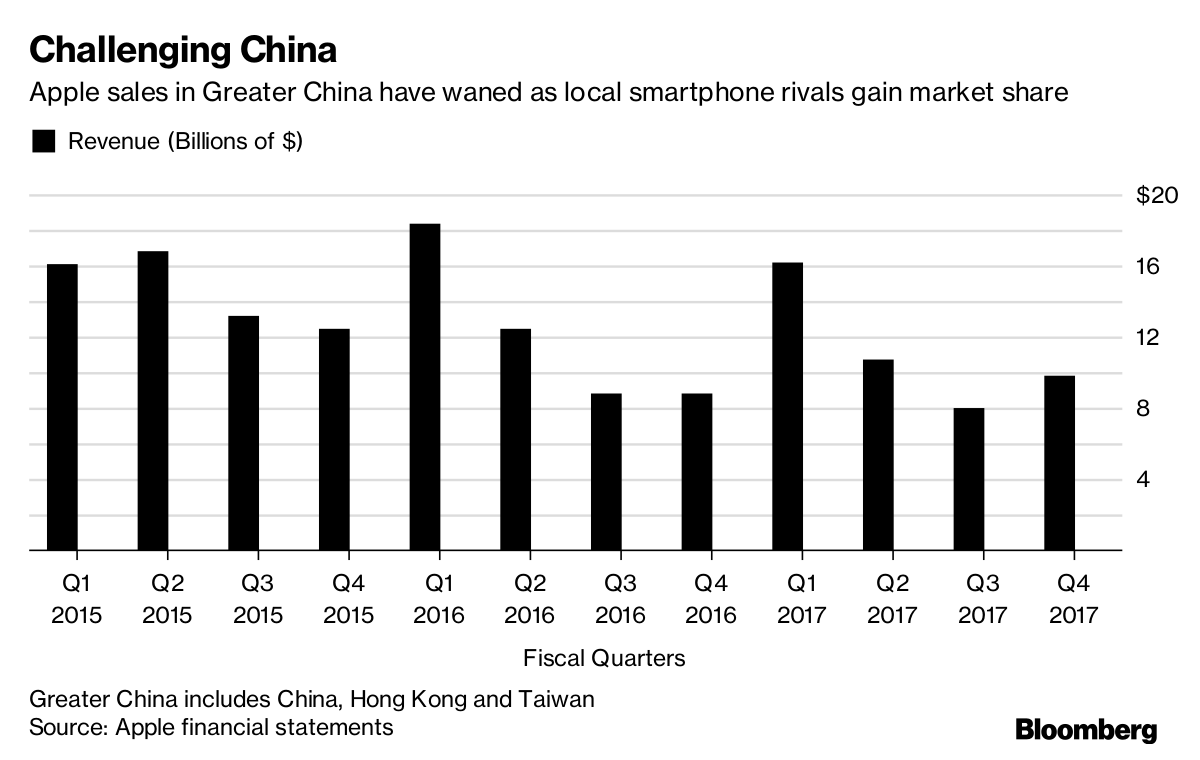China’s top smartphone makers are ready to challenge Apple Inc. on its home turf after trouncing the iPhone maker in their own market.
The U.S. phone market is dominated by Apple and Samsung Electronics Co. Since most phones are purchased through carriers, it’s nearly impossible for a manufacturer to gain serious market share without support from AT&T or Verizon, the two largest U.S. wireless networks.
The telecom companies have supported challengers. Verizon sells Google Pixel phones, and Sprint offers Andy Rubin’s Essential handset exclusively. ZTE Corp., another Chinese phone maker and thus far one of the most successful in the U.S., sells its dual-screen Axon model in the U.S. via a deal with AT&T.
Apple considers China one of its most important markets, yet sales have fallen there in recent years. Apple shipped 8.8 million iPhones in the third quarter in China, ranking behind Huawei, Oppo, Vivo, and Xiaomi, IDC estimated last month. That gives Apple just under 8 percent of the Chinese smartphone market, compared with just over 33 percent for Huawei and Xiaomi combined, according to IDC’s report.

Still, that represents some improvement. Apple saw six successive quarters of iPhone sales declines in China before the third quarter, when it had a 40 percent year-over-year increase, according to research firm Canalys.
Tim Cook, Apple’s chief executive officer, spoke at China’s World Internet Conference in Wuzhen this month for the first time, emphasizing the importance of the market.
Still, some analysts are skeptical that Apple’s rebound can last. Though it introduced its 10th-anniversary iPhone X recently, the $1,000 device costs a lot more than most rivals.
“Apple’s growth this quarter is only temporary,” said Mo Jia, an analyst with researcher Canalys, said. “The hefty price of iPhone X is going to hurt sales in China.”

